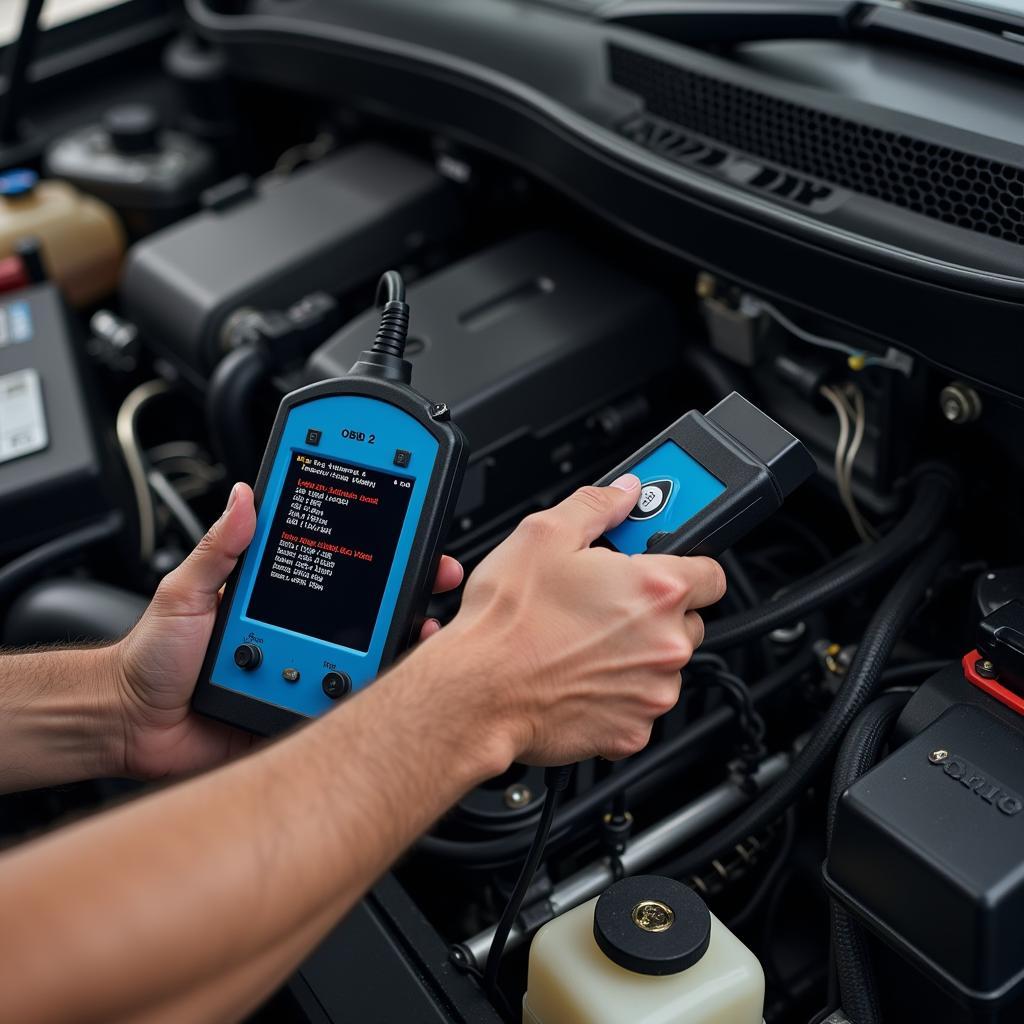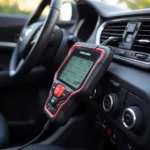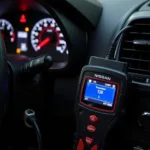You’ve plugged your trusty OBD2 scanner into your pre-1996 car, hoping to diagnose that check engine light, but nothing seems to work. Frustrating, right? This begs the question: will an OBD2 scanner read OBD1 codes?
The short answer is no. OBD2 scanners and OBD1 systems are like different languages – they simply cannot communicate with each other.
Let’s delve deeper into the reasons behind this incompatibility and explore your options for diagnosing those older vehicles.
The Great Divide: Understanding OBD1 and OBD2 Systems
To understand why an OBD2 scanner won’t read OBD1 codes, it’s crucial to grasp the fundamental differences between these two systems:
OBD1: The Early Days of On-Board Diagnostics
- Introduced: Early 1980s
- Standardization: No universal standard, varied widely between manufacturers and even models
- Diagnostic Connectors: Diverse shapes, sizes, and pin configurations
- Data Transmission: Limited data transmission, mainly focused on engine performance
- Fault Codes: Manufacturer-specific, often requiring specialized equipment for interpretation
OBD2: Standardizing the Language of Car Diagnostics
- Introduced: 1996 in the United States (mandated for all vehicles)
- Standardization: Universal standard (SAE J1962) for communication protocols, connector shape, and fault codes
- Diagnostic Connector: 16-pin trapezoidal connector
- Data Transmission: More comprehensive data transmission, encompassing engine, transmission, emissions, and other systems
- Fault Codes: Standardized five-digit alphanumeric codes (DTCs) with consistent meanings across most vehicles
As you can see, the standardized nature of OBD2 paved the way for the affordable and user-friendly scanners we have today. This standardization is also the reason why your OBD2 scanner won’t work with your OBD1-equipped vehicle.
Bridging the Gap: How to Read OBD1 Codes
So, if your trusty OBD2 scanner won’t work, how do you diagnose those pre-1996 vehicles? Here are a few options:
-
Manufacturer-Specific Scan Tools: Your best bet for diagnosing OBD1 codes is to use a scan tool specifically designed for your vehicle’s make and model.
-
Generic OBD1 Scan Tools: While not as common, generic OBD1 scan tools with multiple adapter cables to fit various car models are available.
-
DIY Jumper Wire Method: For the adventurous DIYer, some vehicles offer a rudimentary method of retrieving codes by connecting specific pins on the diagnostic connector with a jumper wire. Consult your vehicle’s repair manual for specific instructions.
OBD2 Scanner: Will it Read OBD1 Codes? – The Bottom Line
While an OBD2 scanner is an invaluable tool for modern vehicles, it won’t work on cars with OBD1 systems due to fundamental technological differences.
However, several options exist for diagnosing OBD1 codes, ranging from manufacturer-specific scan tools to DIY methods. By understanding these differences and exploring the available options, you can confidently tackle those check engine lights, regardless of your car’s age.


